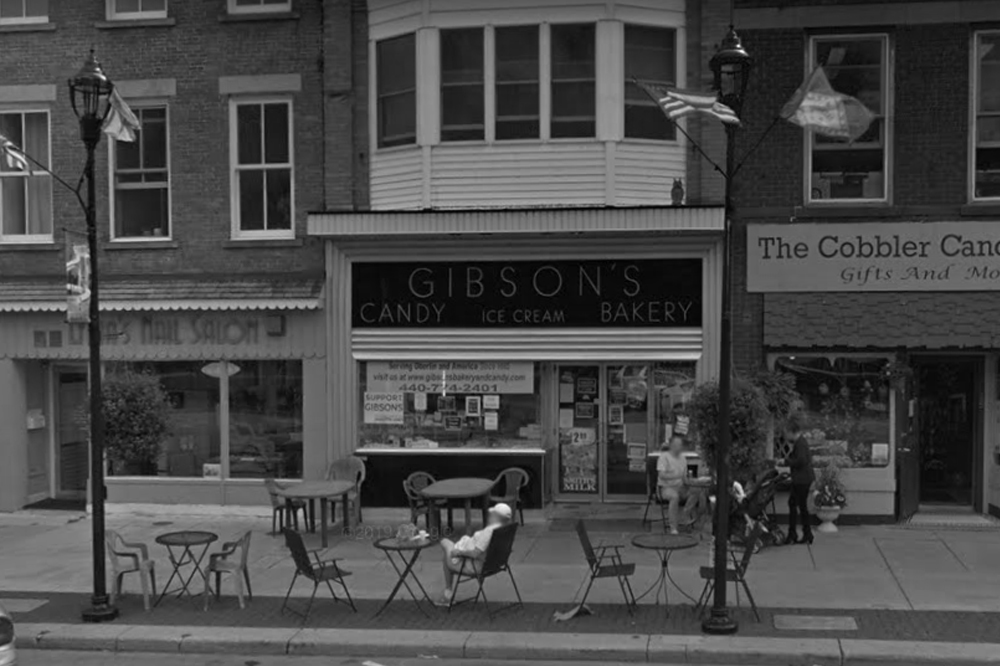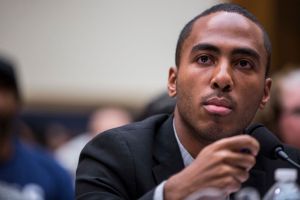For those of us who have been the victims of a public shaming, as I was at the beginning of 2018, something rather wonderful happened last week. The jury delivered its verdict in a law suit that a bakery in Oberlin, Ohio had brought against the neighboring liberal arts college for defamation, infliction of emotional distress and tortious interference. In brief, students and staff at Oberlin College engaged in a long campaign to brand the local business as ‘racist’, inflicting a terrible toll on its reputation, and the jury sided with the plaintiffs.
The story begins on November 9, 2016 when three students entered Gibson’s Bakery, a shop that’s been serving the town of Oberlin since 1885, and tried to purchase two bottles of wine using a fake ID. When the clerk refused to sell to them, they tried to leave with the wine but he ran after them and ended up being kicked and punched on the ground by all three until the police arrived and arrested them. Nothing particularly unusual about that, unfortunately. Between 2011 and 2016, 40 people were arrested for shoplifting from Gibson’s Bakery. But the three perpetrators on this occasion were black and the following day hundreds of student protested outside. The Dean of Students and other college officials brought the protesters pizza and helped them hand out leaflets saying, ‘Don’t Buy. This is a racist establishment with a long account of racial profiling and discrimination.’
Needless to say, that wasn’t true. Of the 40 shoplifters arrested in the previous five years, 32 were white, six were black and two were Asian. A black employee of Gibson’s told a local newspaper that racial profiling had nothing to do with the arrest. ‘If you’re caught shoplifting, you’re going to end up getting arrested,’ he said. ‘When you steal from the store, it doesn’t matter what color you are. You can be purple, blue, green; if you steal, you get caught, you get arrested.’ Even the three students agreed. When they eventually pleaded guilty a year later, they each signed a statement saying, ‘I believe the employees of Gibson’s actions were not racially motivated. They were merely trying to prevent an underage sale.’
In spite of no evidence of racism, the students continued to protest and demanded that Oberlin College sever all relations with the bakery, which it duly did, including canceling a longstanding contract whereby it supplied food to the refectory. As a result, three generations of the Gibson family had to stop paying themselves and most of their employees were laid off. The college’s administrators behaved in this way in spite of knowing the allegations were false – an email from a woman who worked in the communications department to her bosses said that all the black people she’d spoken to in the town were ‘disgusted and embarrassed’ by the protest. ‘To them this is not a race issue at all and they do not believe the Gibsons are racist,’ she wrote.
The Gibson family decided to sue and, not surprisingly, the jury of local townsfolk sided with the bakery. In a glorious rejoinder to the po-faced activists at Oberlin College, they awarded the plaintiffs $11 million in compensatory damages and $33 million in punitive damages. In America, conservatives have hailed this as a turning point in the culture war, putting social justice warriors on notice that trying to destroy people’s reputations by labeling them ‘racists’ – or ‘misogynists’ or ‘homophobes’ – could cost them dear. That is probably overstating the effect of this case, particularly as Oberlin College may appeal, but there are a number of other lawsuits wending their way through the American courts and if they end in the same way it really might have an impact.
For instance, Nick Sandmann, the Covington Catholic student who was vilified by the media last January after a video of him supposedly ‘smirking’ at a Native American protester went viral, is suing the Washington Post for $250 million, NBC for $275 million and CNN for $275 million. In another case, an author called Natasha Tynes is suing her publisher for $13 million after it canceled her book contract because she was branded a ‘racist’ on social media for tweeting a photograph of a black employee of DC Metro breaking the transportation company’s rules by eating on a train.
Could the same tactics work in Britain? I’ve been encouraging Noah Carl, the young academic who was fired by St Edmund’s College, Cambridge after being falsely accused of ‘racism’ by a mob of student protesters, to go to law. If he ends up launching a crowdfunding campaign to pay his costs I will do everything in my power to help.
This article was originally published in The Spectator magazine.


















